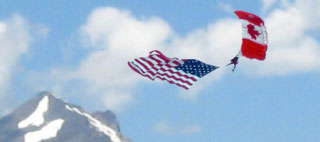Cross-border Shopping for Christmas
Author: Brad Howland
First Posted: Nov. 11, 2007
Are you intending to take advantage of the strong Canadian dollar and look for deals south of the border? The Canada Border Services Agency (CBSA) website has a guide for Canadian residents returning to Canada, which indicates how much you can bring back from the United States duty-free.
Every traveller to the U.S. should read this guide before leaving, especially if you plan to transport unusual items such as alcohol or firearms, or ship gifts from the U.S. to Canada.
The main rules are:
If you travel with more than $10,000 in cash or other monetary instruments, you have to report it to CBSA when you cross the border.
If you are gone for more than 24 hours, you can bring back up to $50 (CDN) in goods duty-free. If you are gone for more than 48 hours, you can bring back $400 in goods. If gone for more than 7 days, you can bring back $750.
When adding up days of absence from Canada, don't count the day that you leave the country, but count the day you return.
You have to convert your purchases from the foreign currency into Canadian dollars to ensure they are under the exemption amounts. You must have the goods with you when you return to Canada, and you can't combine your amount with another traveler.
Here's something that I found interesting: people always seem to wonder why duty is charged on certain items purchased from the United States, when the two countries are supposed to have a free trade agreement (NAFTA). The guide explains that for goods to qualify as duty-free under NAFTA, they have to be for personal use, and they have to be marked as made in the United States or Canada, or not marked to indicate they were made anywhere other than in the United States or Canada. Who knew?
For Americans willing to pay a premium on the dollar and do their Christmas shopping in Canada, American Consular Services (AMCITS) provides travel tips and information about the duty-free exemption, which is either $200 or $800 (USD). A curious difference with Canada is that family members who live in the same house can combine their exemptions into a joint declaration.
